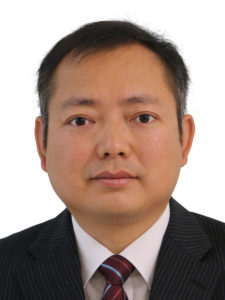2020 Advances in Measurement Science Lectureship Winner
Analytical Methods would like to congratulate our Associate Editor, Professor Zhen Liu (Nanjing University, China), on being selected as one of the 2020 Advances in Measurement Science Lectureship winners. The prize will be presented to him at Pittcon conference in Chicago, March 1st – 5th, 2020.
Zhen is Distinguished Professor at Nanjing University, China. He obtained his PhD from Dalian Institute of Chemical Physics, Academy of Sciences of China in 1998. After post-doctoral training at Hyogo University (former Himeji Institute of Technology) in Japan as a JPSP scholar (2000-2002) and at the University of Waterloo in Canada (2002-2005), he joined Nanjing University as a Full Professor in 2005. He was appointed as Adjunct Professor at the University of Waterloo (2011-2014). He was awarded the National Science Fund for Distinguished Young Scholars (2014). His research interests include separation science, affinity materials, molecular imprinting, bioassays, single cell analysis, hyphenated analytical approaches, and nanomaterials for cancer therapy. He is particularly interested in integrating multidisciplinary knowledge, expertise and skills to overcome challenges in life science, such as disease diagnosis and cancer therapy.
Please join us in congratulating Zhen on this achievement!













